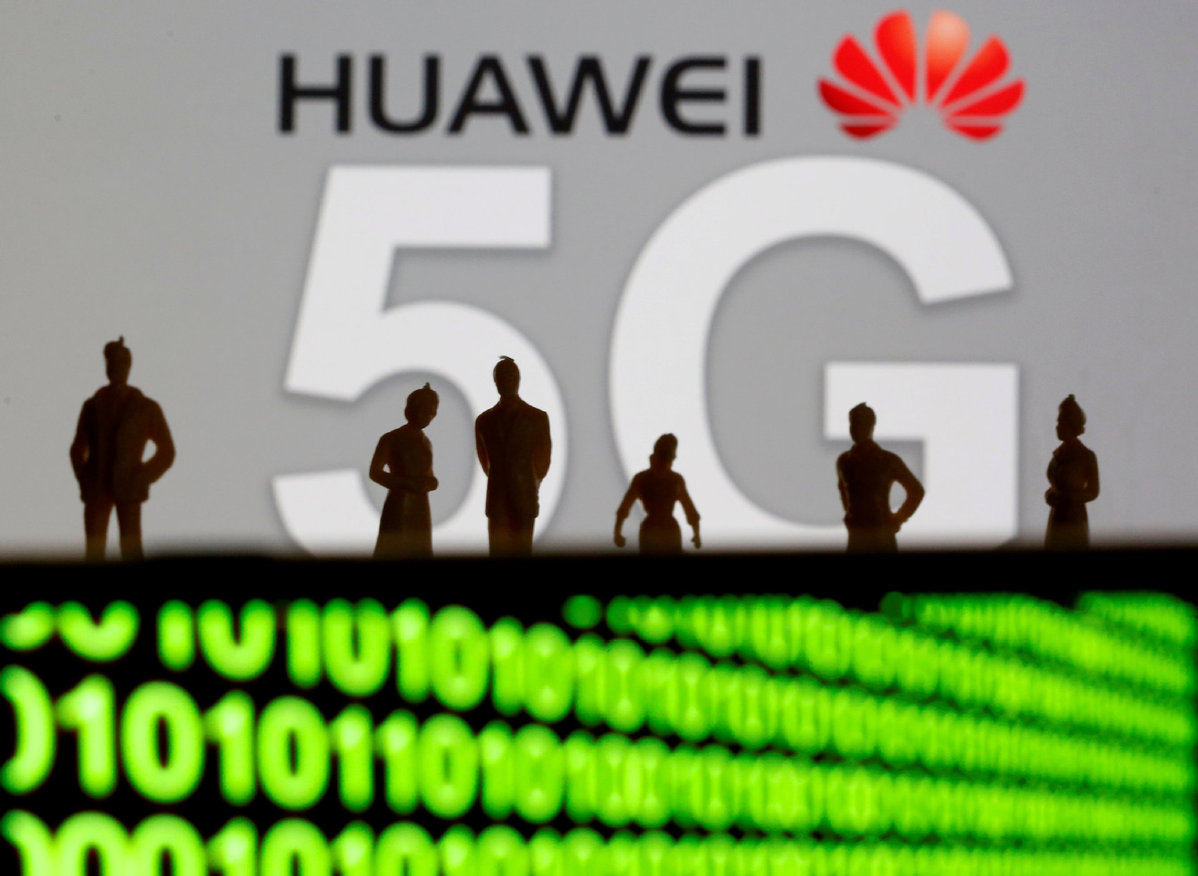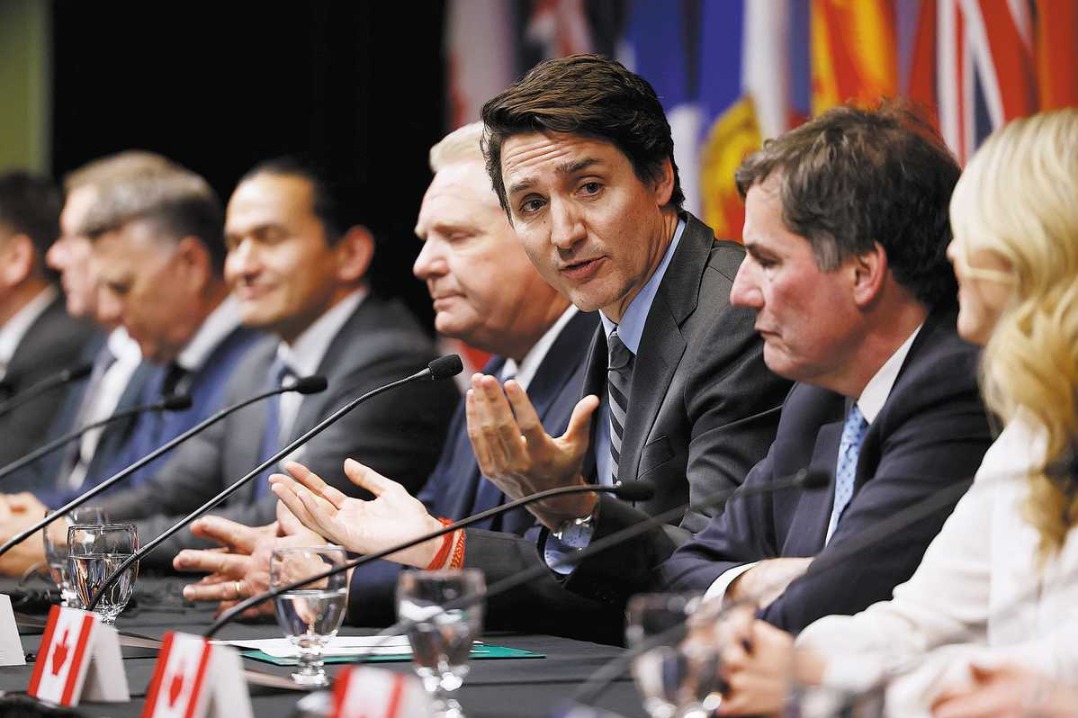Huawei or the highway?


When it comes to industrial revolutions, the United Kingdom has always been a prime mover.
From Thomas Savery's steam engine, to Alexander Graham Bell's telephone and Alan Turing's computing machine, British innovation has been central to the three major technological boom periods of the previous two centuries.
But analysts warn that a combination of cyber security fears and political posturing now casts doubt over Britain's role in the fledgling fourth industrial revolution, where new technology will increasingly blend the physical, digital, and biological spheres.
At the end of this month, the UK government is expected to reach its verdict on Huawei's potential involvement in building Britain's 5G network infrastructure, and it is hard to overstate how much is at stake.
The fifth generation of mobile and internet networks-otherwise known as 5G-will provide the connective framework for the Internet of Things and the automated machines that are set to define this next technological era.
A trio of telecommunications companies-Finland's Nokia, Sweden's Ericsson, and China's Huawei-will install the majority of the world's 5G hardware in the near future. And Huawei has arguably the most advanced equipment of the three.
The Shenzhen-based company is making significant ground in the race to roll out 5G. On Tuesday, Rotating Chief Executive Ken Hu announced that Huawei has secured 40 5G contracts around the world and has already shipped more than 45,000 5G base stations.
But a United States-led boycott of Huawei over security concerns has put pressure on US allies to ban the Chinese company from participating in their own 5G auctions. Both Australia and New Zealand have already instructed their domestic network operators to source 5G hardware from alternate partners, and several other nations are contemplating following suit, including Britain.
The UK wants to establish itself as a test bed for driverless cars, connected homes, digitized workplaces and other emerging innovations that will depend on 5G, and industry players warn that a delay on 5G rollout would put these plans in jeopardy.
"A full restriction on Huawei would have a very real and detrimental impact," said Matthew Howett, principal analyst at London-based tech analysts Assembly Research. "Huawei's equipment is more ready to deploy than others, so it's a very real possibility that the UK loses out on a leadership position."
This month Assembly published a report on the impact a Huawei ban would have on the United Kingdom. The report was commissioned by Mobile UK, a trade association that represents four of the nation's major mobile network operators-EE, O2, Three and Vodafone.
The report found that a partial to full restriction on Huawei in the telecoms supply chain could result in an 18 to 24-month delay to the widespread availability of 5G in the UK.
Using the government's own estimates on the benefits of 5G, Assembly calculates the cost of this delay to the UK economy at between 4.5 billion pounds ($5.9 billion) and 6.8 billion pounds.
That figure takes into account a reduction in competition in the supply chain which has up until now been good for technological progress, as well as a significant loss in benefit for consumers and industries reliant on both 4G and 5G connectivity.
The UK will also suffer in terms of lower inward investment and lost productivity gains through the stagnation of digital infrastructure, the report found.
"The government is carrying out the supply chain review to make a decision on whether or not they should place restrictions on Huawei," said Howett. "The feeling amongst mobile operators in the UK is that there are parts of the debate that are missing in terms of the cost and delay to 5G availability and rollout should there be a restriction. They feel the debate is purely focused on the security angle, and not looking enough at what the other implications would be of a decision of this nature."
Howett says that a multitude of industries-including car manufacturing and health care-will suffer from a delayed rollout. Several automakers are investing heavily in self-driving technology in the UK, but this may no longer be the case if 5G stalls in the country.
"If they find out there is not going to be a credible widespread 5G network available for another two years, they are going to take that investment and they are going to put it in another country where there is a 5G network for them to use," Howett said.
A further example that network provider O2 gives is in the health service, where 5G-enabled technology could replace physical GP consultations with telehealth. A reduction of onsite consultations of just 5 percent translates to 4 million GP visits a year, reduced waiting times, and the freeing up 1 million hours of GP time. O2 estimates this would result in a productivity gain of 1.3 billion pounds.
Mobile operators in the UK will be among the first to take a major hit if the government places restrictions on Huawei.
Vodafone UK chief technology officer Scott Petty said that a Huawei ban would cost the company hundreds of millions of pounds.
"If we were forced to remove Huawei from the network, we would need to go to the 32 percent of base stations that are currently using Huawei for radio and replace all of those with somebody else's technology and then deploy 5G on top of that," said Petty.
He also explained that a Huawei ban would involve the removal of 4G hardware from many of the company's 18,000 base stations in the UK.
This is because 5G will be built upon existing 4G kit. Most operators use a mix of companies when building their network infrastructure. Hardware from different suppliers is often not compatible-Nokia or Ericsson cannot simply build out their 5G network on the back of Huawei 4G hardware.
So, if Huawei equipment is banned, operators will have to rip out 4G kit and start from scratch with other providers. This could mean that, for a period of time, populations of mobile users in the UK will go back to a 3G network.
Chief executive of Three, David Dyson, says that the company has already elected to partner with Huawei on 5G, and that a government-imposed ban would stall their efforts significantly.
"Huawei met all of the standards that the other operators met, and we felt at the end of that process that Huawei was the right choice for our customers and for our business," he told the BBC."We've already started to deploy equipment for when we launch 5G in the second half of the year. So, if we had to change vendor now, we would take a big step backwards."
At the core of the British government's deliberations lie accusations from the US that Huawei has assisted the Chinese government in espionage. Evidence of Huawei spyware is yet to materialize, and the company has repeatedly rubbished the claims.
"Huawei has not and will never plant backdoors," Huawei chairman Guo Ping said last month. "And we will never allow anyone else to do so in our equipment."
On Monday, Huawei was buoyed by the news that Germany will not exclude the company from participating in 5G tenders, and the European Commission has so far ignored calls from the US to back the boycott
Huawei's prospects in the UK are less certain, and a recent review from British security services raised concerns.
An oversight board that monitors Huawei activity in the UK said it can only provide "limited assurance" that all national security risks originating from Huawei's involvement in the UK's critical networks can be "sufficiently mitigated long-term".
Ian Levy, technical director of the UK National Cyber Security Center, or NCSC, said that security issues stemmed from "shoddy work" in some areas of the existing Huawei hardware in UK networks, and that accusation of spying are overstated.
"We do specifically say that we don't believe the things we are reporting on are the evidence Chinese state maleficence," Levy told the BBC last week.
Huawei has initiated a 2-billion-pound transformation program to address the engineering issues in its UK networks, but Levy said that the NCSC has not yet received adequate assurances that the program will be sufficient.
The UK government's verdict on Huawei will arrive as the world stands on the brink of a digital revolution. The Groupe Speciale Mobile Association, which is a global telecoms trade body, estimates that 5G services will add $565 billion to global GDP between 2020 and 2034.
In a recent letter to employees, Guo Ping said Huawei remains committed to playing a major role in this digital transformation.
He also gave his two cents on the prospects of nations that ban companies:"For 5G markets that choose to not work with Huawei, they will be like an NBA game without star players."
































